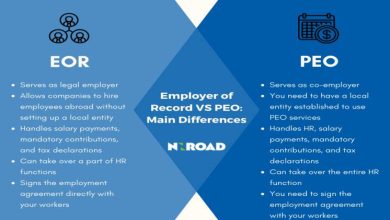Pressure Points: Risk Factors Every Propane Distribution Business Must Monitor

Propane: it’s the clean, reliable fuel that warms homes, powers businesses, and keeps the barbecue sizzling.
As a propane distributor, you’re the vital link in this energy chain, ensuring communities have access to this essential resource. But with great responsibility comes a complex landscape of risks. Running a propane distribution business isn’t just about logistics and customer service; it’s about navigating a series of critical “pressure points” that demand constant vigilance and robust management. Understanding these factors is paramount for safety, compliance, profitability, and the long-term health of your business – and comprehensive propane insurance is an indispensable part of that equation.
The very nature of propane – a liquefied petroleum gas (LPG) stored under pressure and highly flammable – means there’s inherently no room for error. A minor oversight can escalate into a major incident. Let’s explore the key risk factors that every propane distribution business must keep firmly on its radar.
- Operational Minefields: From Bulk Plant to Customer Tank
The day-to-day operations of a propane business are rife with potential hazards that need meticulous management:
- Transportation and Delivery Perils: Your fleet is constantly on the move, making transportation one of the most significant risk areas. This includes:
- Vehicle Accidents: The potential for collisions, rollovers, and spills is ever-present, carrying immense liability.
- Loading/Unloading Incidents: Mistakes during the transfer of propane at the bulk plant or customer site can lead to leaks and dangerous situations.
- Driver Safety: Fatigue, inadequate training, or rushing can contribute to errors with severe consequences.
- Bulk Plant Vulnerabilities: Your storage facility is the heart of your operation, but also a concentration of risk:
- Equipment Malfunction: Leaking valves, failing pumps, or compromised tank integrity can lead to significant releases.
- Overfilling and Handling Errors: Human error during filling or maintenance can create hazardous conditions.
- Security Breaches: Unauthorized access or tampering can pose serious safety and security threats.
- Customer Site Challenges: Your responsibility often extends to the customer’s property:
- Incorrect Installations: Improperly installed tanks or lines are a leading cause of leaks and accidents.
- Tank Maintenance & Corrosion: Aging or poorly maintained customer tanks can fail. Regular inspections and customer education are crucial.
- Out-of-Gas Situations & Relights: These require careful procedures to ensure safety upon service restoration.
- Workforce and Equipment Reliability:
-
- Skilled Labor Shortages: Finding and retaining qualified, well-trained drivers and technicians is a persistent industry challenge.
- Equipment Breakdown: Failures of critical equipment, from trucks to safety valves, can halt operations and compromise safety.
- The Weight of Regulation and Safety Compliance
The propane industry is heavily regulated for a good reason. Staying on the right side of the law isn’t just about avoiding fines; it’s about protecting lives and the environment.
- Navigating Codes and Standards: Strict adherence to NFPA 58 (the Liquefied Petroleum Gas Code) and all applicable federal, state, and local regulations is non-negotiable. This includes everything from equipment specifications and installation procedures to employee training and emergency protocols.
- Emergency Preparedness is Key: You must have robust, well-rehearsed emergency response plans for leaks, fires, and other potential incidents. This includes clear communication channels with local emergency services.
- Employee Safety (OSHA Compliance): Ensuring a safe working environment, providing proper personal protective equipment (PPE), and thorough training on handling hazardous materials are critical to prevent injuries.
- Environmental Liabilities: Propane spills or leaks, though propane is considered cleaner than many fuels, can still lead to environmental contamination, requiring costly cleanup and remediation efforts. Proper handling and spill response are vital.
- The Paper Trail Matters: Meticulous record-keeping for training, inspections, maintenance, deliveries, and compliance checks is essential. These documents are your first line of defense during an audit or in the event of an incident.
- Market Volatility and Financial Exposures
Beyond the physical risks, economic factors can also exert significant pressure:
- Price Fluctuations: The volatile nature of propane prices can squeeze margins and create challenges in customer pricing and retention.
- Supply Chain Reliability: Disruptions in propane supply from refineries or pipelines can impact your ability to serve customers, especially during peak demand.
- Competitive Landscape: Facing competition from other propane suppliers and alternative energy sources requires strategic planning and efficient operations.
- Credit and Collections: Managing customer credit and ensuring timely payments is crucial for healthy cash flow, particularly with seasonal demand cycles.
- The Digital Frontier: Cybersecurity Risks
As propane businesses increasingly rely on technology for logistics, customer data management, billing, and even tank monitoring, a new pressure point has emerged: cybersecurity.
- Data Breaches: Protecting sensitive customer and financial information is paramount. A breach can lead to significant financial loss and reputational damage.
- Operational Disruption: Ransomware or other cyber-attacks could potentially cripple dispatch systems, payment processing, or even automated safety controls at bulk plants.
The Unwavering Shield: Comprehensive Propane Insurance
While diligent risk management, robust safety protocols, and continuous training are your first lines of defense, the unpredictable can still happen. This is where specialized propane insurance becomes an absolutely critical component of your business’s resilience.
Standard business insurance policies are rarely adequate to cover the unique and substantial exposures faced by propane distributors. You need a propane insurance program tailored to the industry, which should typically include:
- General Liability: Specifically endorsed to cover propane-related activities and potential third-party bodily injury or property damage.
- Commercial Auto Liability: High limits are essential due to the nature of transporting hazardous materials.
- Pollution Liability: Crucial for covering cleanup costs and damages from spills or leaks. This is often a standalone policy or a significant endorsement, as standard GL policies usually exclude pollution.
- Property Insurance: Protecting your bulk plant, storage tanks, equipment, and office buildings.
- Workers’ Compensation: Covering injuries to your employees, a vital consideration given the physical nature of the work.
- Product Liability: If an issue arises from the propane itself or equipment you’ve installed that causes harm or damage.
- Cyber Liability Insurance: To protect against the financial fallout of data breaches and cyber-attacks.
- Umbrella/Excess Liability: Providing an additional layer of coverage above your primary policy limits for catastrophic events.
A strong propane insurance partner will not only provide financial protection but also often offer risk management resources and expertise to help you identify and mitigate potential hazards.
Beyond Insurance: Cultivating a Culture of Safety
While propane insurance is your financial safety net, it works best in tandem with a deeply ingrained culture of safety. This means:
- Prioritizing continuous and comprehensive training for all employees.
- Implementing rigorous inspection and maintenance schedules for all equipment, vehicles, and storage facilities.
- Fostering an environment where employees feel empowered to report potential hazards without fear of reprisal.
- Regularly reviewing and updating your emergency response and safety procedures.
- Educating your customers on the safe use and handling of propane.
Navigating the Pressure with Confidence
Operating a propane distribution business is a demanding endeavor, with pressure points that require unwavering attention. By proactively identifying, monitoring, and mitigating these risks through sound operational practices, strict adherence to safety and regulatory standards, and a robust, specialized propane insurance program, you can navigate these challenges with greater confidence. This holistic approach not only protects your business and your employees but also ensures you can continue to safely and reliably serve the communities that depend on you.




